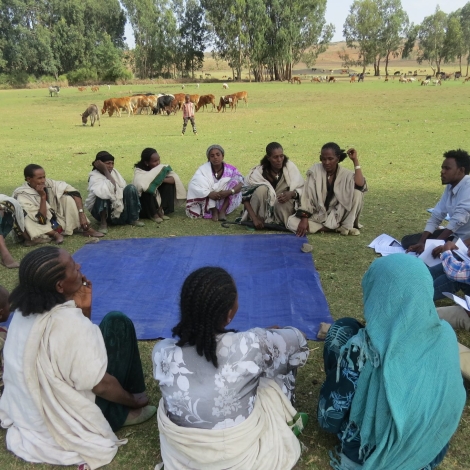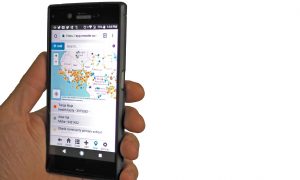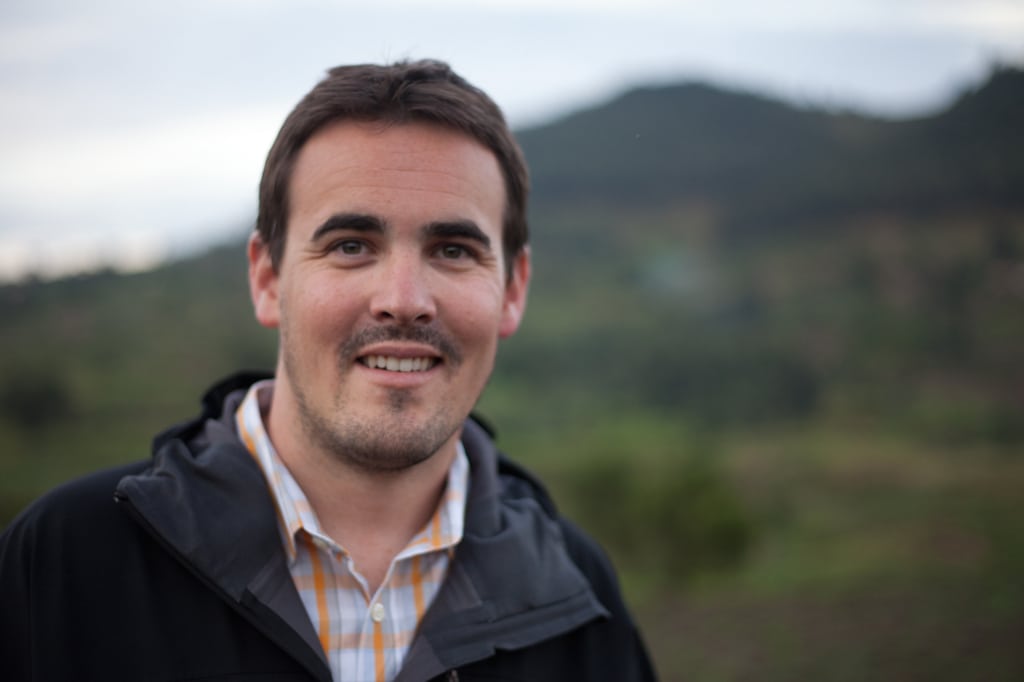The CARE Water+ team reviewed three ICT tools to improve the efficiency of monitoring data on water points and water and sanitation projects: Water Point Mapper, Akvo FLOW and mWater. The team ranked them on three criteria: economic viability, technical capability and administrative operability. To inform the evaluation, the team interviewed district-level government ministry and CARE staff in Uganda, Ethiopia and Zambia. They also interviewed the developers of the three tools. The chart below shows the results. The high score went to mWater, deemed the most suitable tool for improving monitoring and decision-making for water and sanitation projects by local government supported by CARE staff. mWater is the right choice for CARE’s Water+ team. These findings may influence ICT decisions that other practitioners take in the future.
It is no secret that 30 – 40 percent of water handpumps in Africa are not functioning at any given time. In large part, these failures are the result of inefficient monitoring systems that are often unable to provide up-to-date information about the functionality of existing water points. Under existing systems, data collection is often fragmented. The periodic administration of one-off, paper-based surveys and the subsequent manual entry of data from these surveys offer several opportunities for the introduction of error into the system. Even when this process manages to yield accurate data, these data must then be accessible to government entities, private sector partners, or other NGOs that are able to repair water points. However, as many monitoring systems stand now, data are kept in paper-based reports or proprietary databases of donor-funded programs. These obstacles make it challenging for NGOs, private services or government agencies to provide a timely response to infrastructure failures, to track functionality of water points over time, to identify regional or national patterns by aggregating data, or to make decisions about future resource allocation and infrastructure installation. Information and communications technology (ICT) tools, however, provide innovative solutions for streamlining data collection, data analysis, and data reporting processes as well as for integrating data from a multitude of sources into one cohesive and accessible system.
Many tools are available, but which ICT best meets the technical and administrative needs as well the economic and operational requirements of the organization and its activities? In 2015, CARE conducted a study to answer that very question. The study examined three popular ICTs and evaluated them according to three key parameters: economic viability, technical capability and feasibility, and political acceptability and administrative operability. Water Point Mapper, Akvo FLOW and mWater were all reviewed. The table below shows the scores assigned to the ICTs for each parameter as well as the rationale for each score.
See E4C’s Solutions Library for side-by-side comparisons of data on Akvo FLOW, mWater and other ICT tools for WASH
Comparison of ICT Tools on Three Key Parameters
In 2014 and 2015 CARE piloted the use of mWater to collect, analyze, and report survey data concerning 164 water schemes across Ethiopia, Tanzania, and Uganda. District-level government ministries in these countries were trained, over the course of three days, on the use of the platform. The first two days involved classroom-based training and the third day involved data collection in the field. The results from this data collection phase demonstrated that mWater was a strong fit for CARE’s needs and showed the wide variety of technical capabilities of the platform. Representatives from government ministries noted that the data collection process was much faster and easier than when using paper-based surveys. Results were easy to aggregate and the mWater portal allowed users to identify the type of water scheme, the functionality of the water scheme on the day of the survey, the historical functionality of the water scheme since establishment, and the reasons for any non-functionality. Users were able to view results as counts, percentages, maps, and pie charts and were able to stratify results by variables such as presence of WASH committees and involvement of women in WASH committee decision-making.
Since the implementation of mWater as an ICT tool, government ministry staff, in partnership with CARE country offices, have improved efficiency of response to broken water schemes; utilized monitoring data for policy, decision-making, and resource allocation; and increased transparency to donors by tracking the performance and functionality of individual water schemes over time. The use of mWater will also allow these government ministries and CARE country offices to share data with other NGOs and to conduct in-depth lifecycle cost analysis, as the platform helps track maintenance costs over time.
The CARE Water+ team is excited about the use of mWater for monitoring water projects with government inputs, data and access to the database. In Zambia mWater is used by CARE and the Government of Zambia to track progress on a school WASH project. In Ethiopia mWater is used in two projects tracking community water supplies.
Through the Kenya RAPID program of Millennium Water Alliance, CARE has piloted 21 SweetSense Satellite sensors in Garissa county, Kenya. Garissa has high poverty rates, a semi-arid-to-arid climate that exacerbates chronic food and water insecurity, and poor access to basic services. The sensors were installed on water pumps to allow for remote data collection that predicts and reports pump non-functionality and water volumes. The sensors provide evidence-based data, to help in decision making and enhancing service delivery in the water sector.
Stay tuned for more information on this and other uses of ICT by CARE to improve real-time response to conditions.
About the Author
Kelly Alexander works for CARE as the Senior Learning and Influencing Advisor on the Water+ team. She works with CARE country offices to evaluate project effectiveness, share lessons learned and improve programming according to data from monitoring systems and beneficiary feedback.
Written with support from Allison Salinger and Rahul Mitra.



